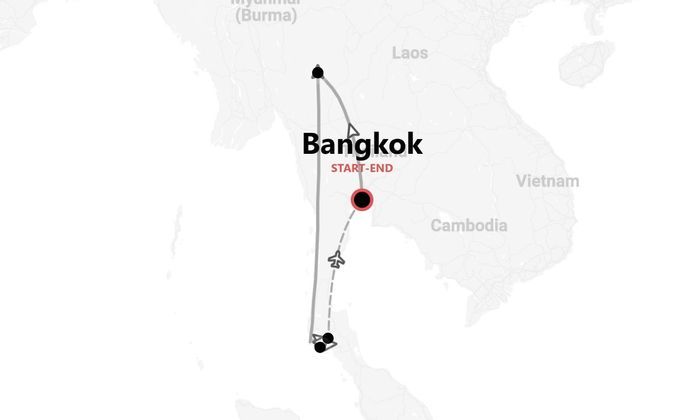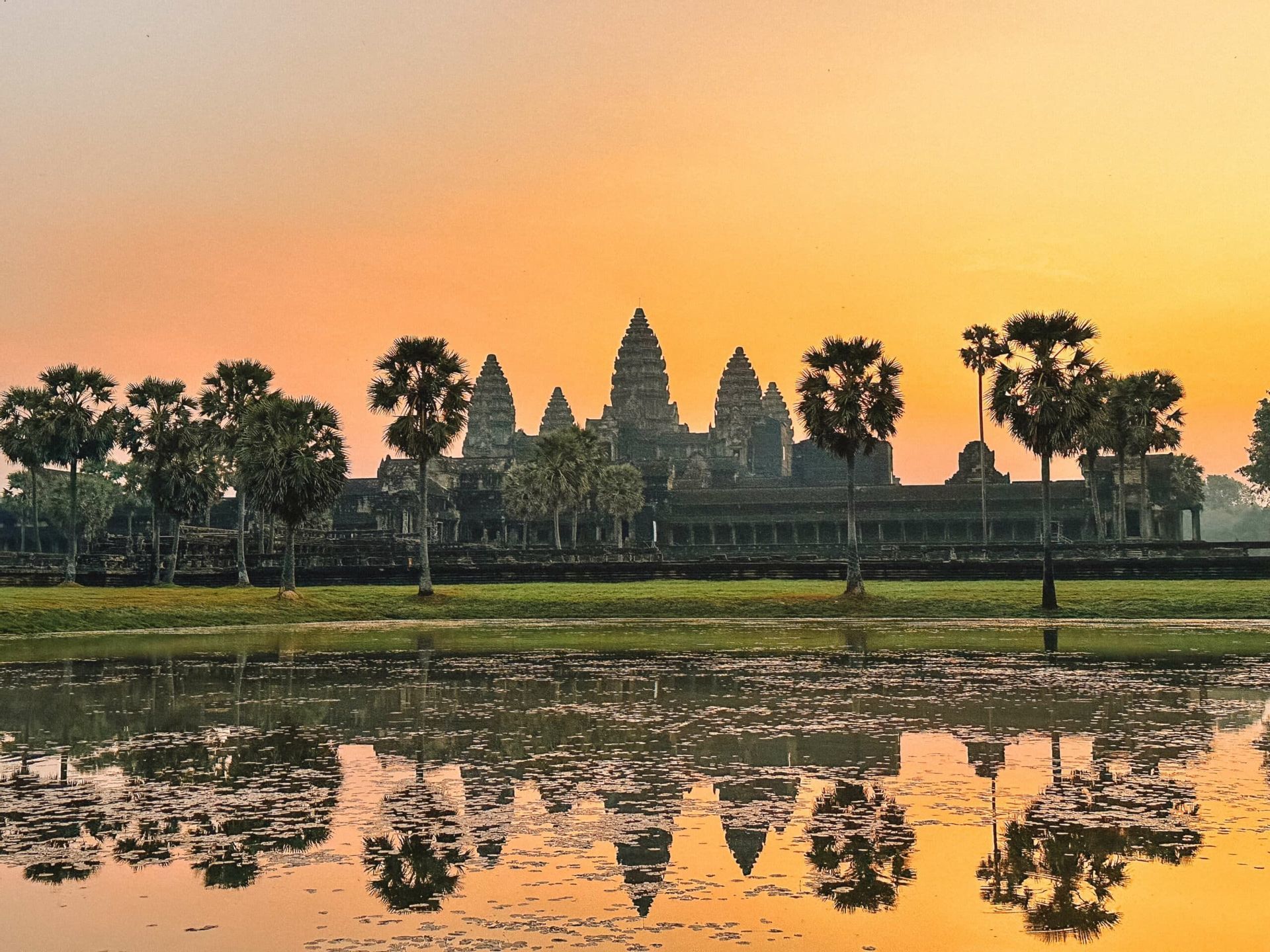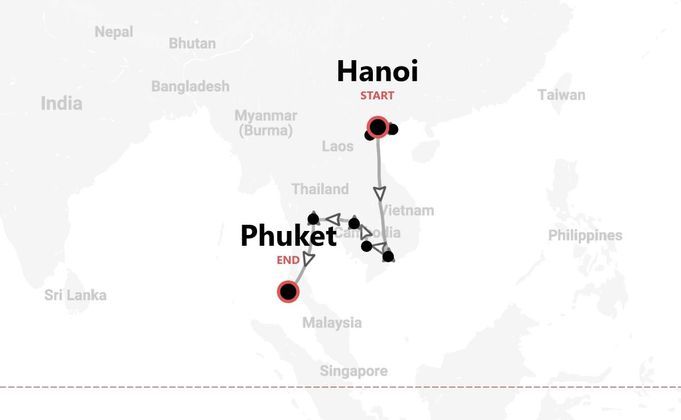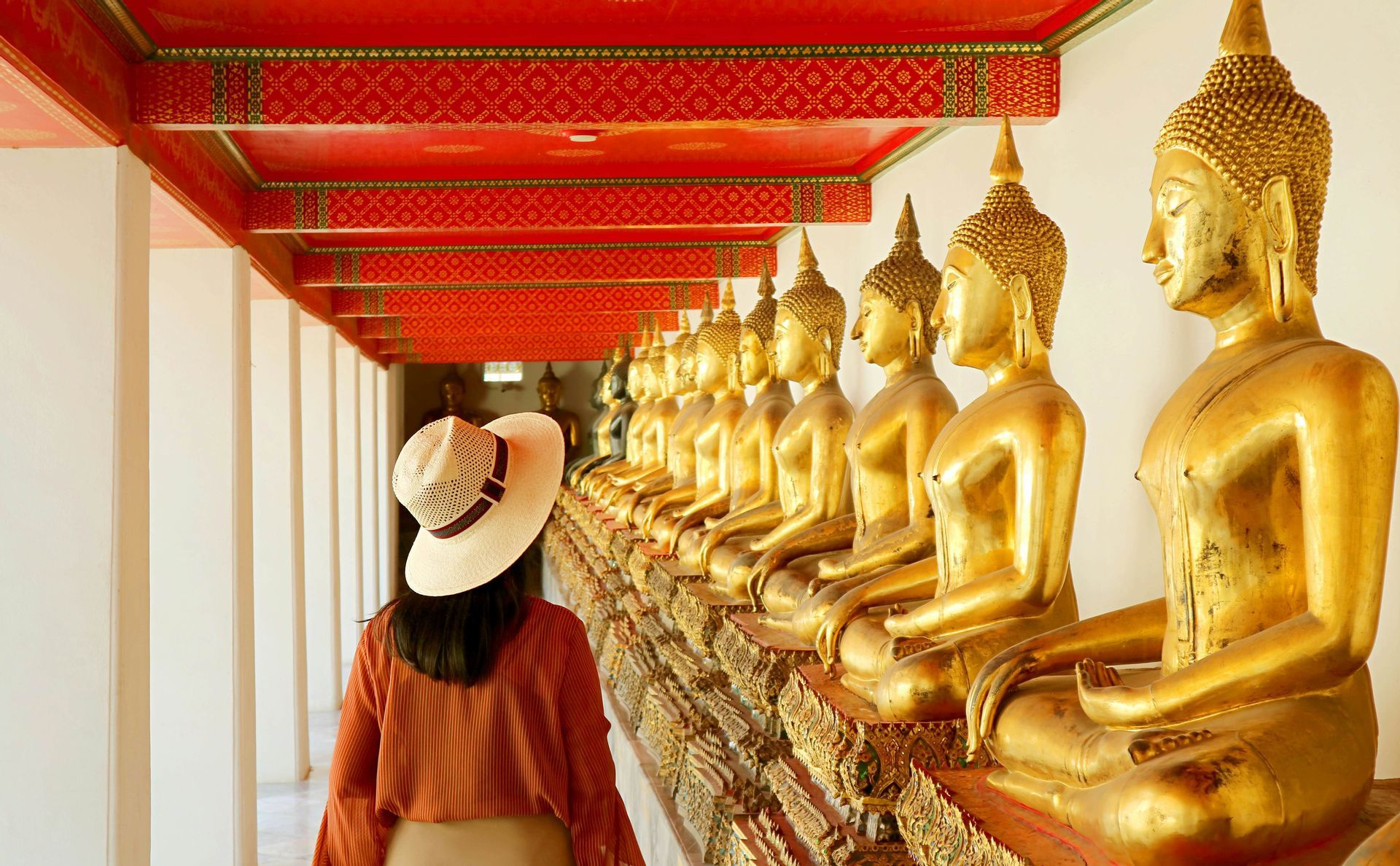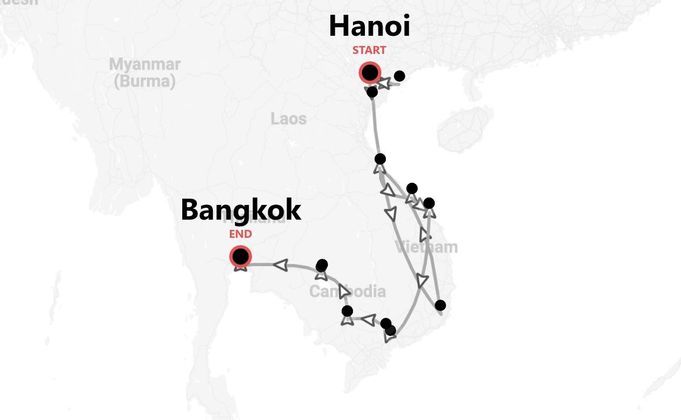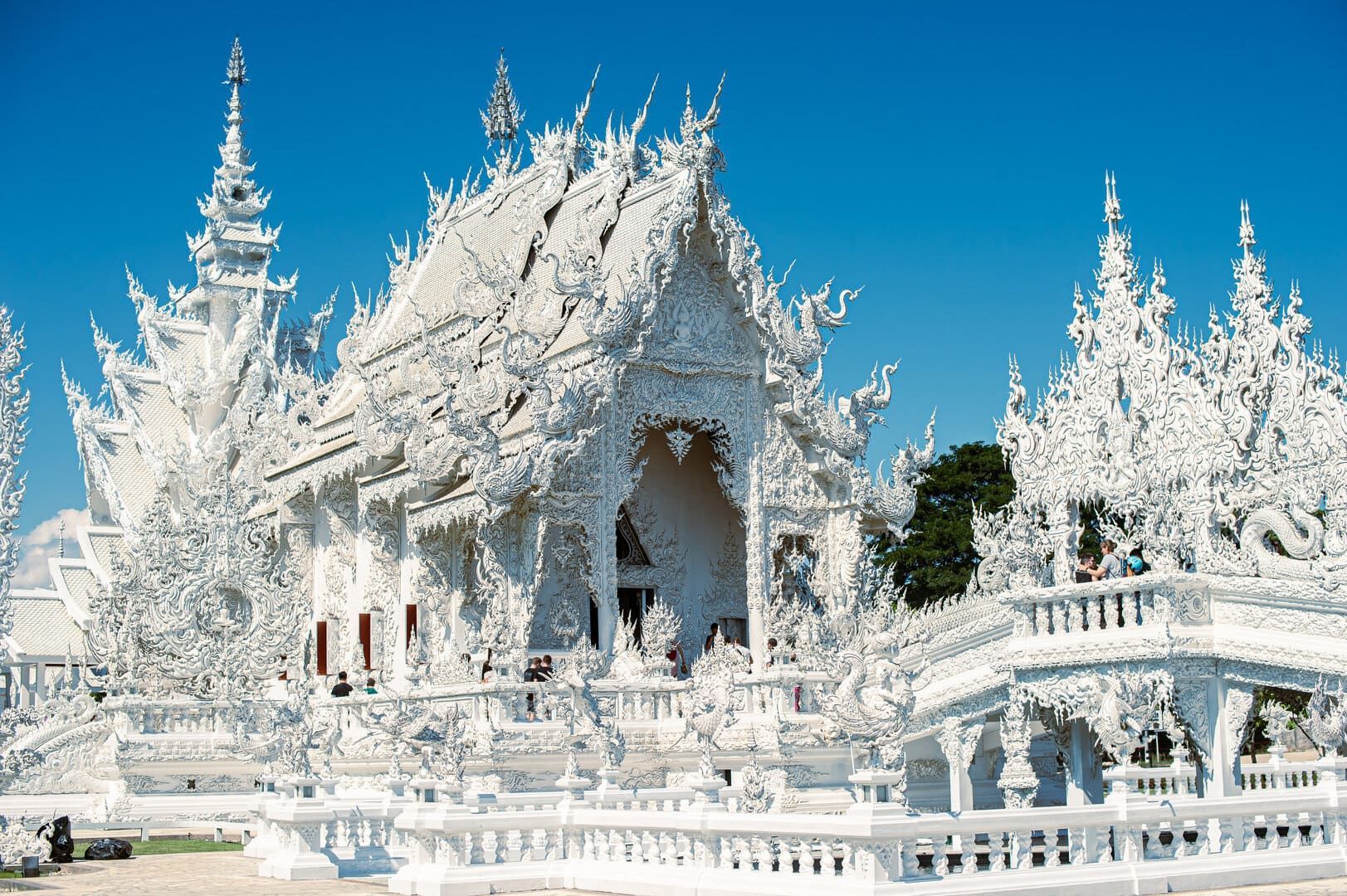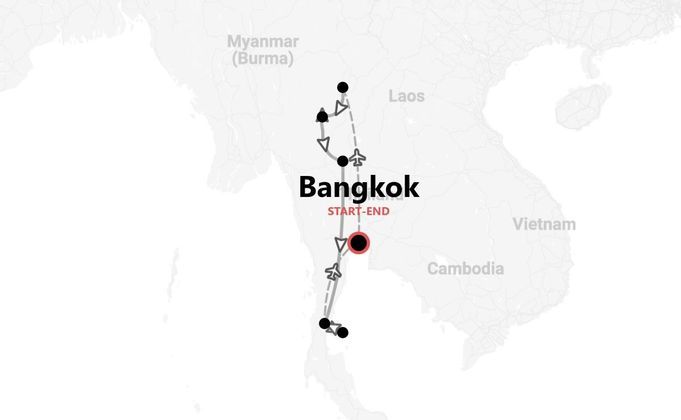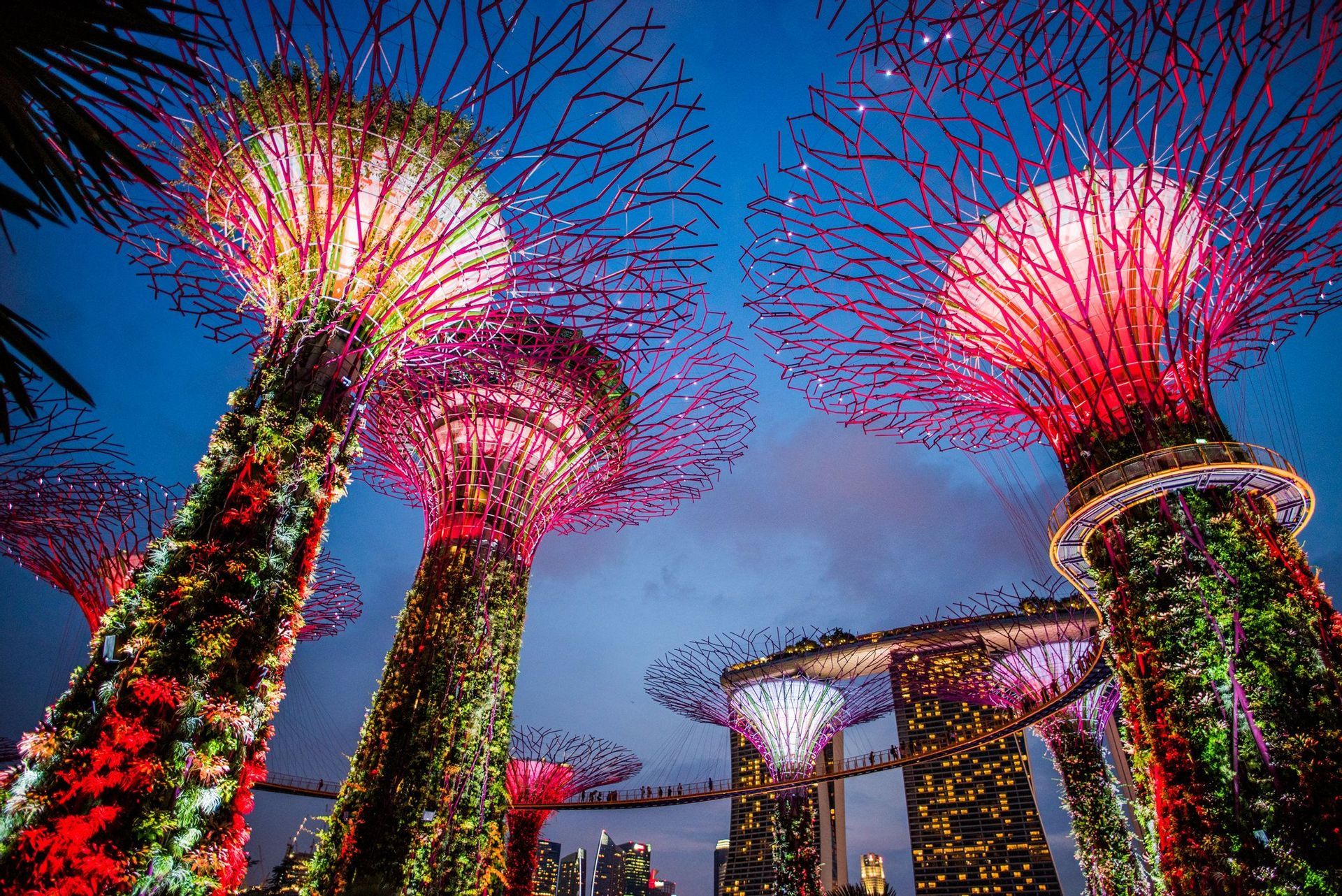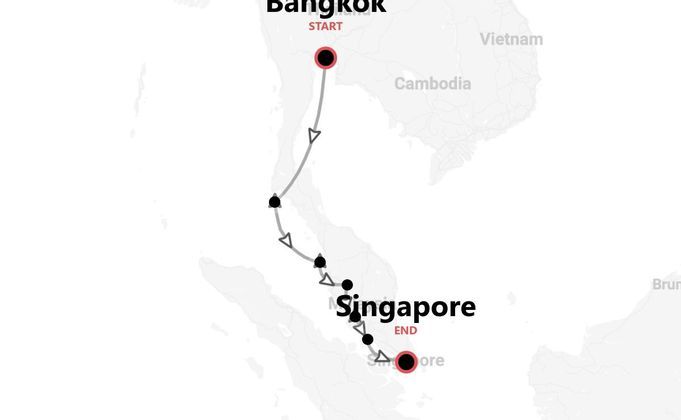
Group trips to Thailand
Out organized trips to Thailand
Ancient ruins and modern skyscrapers, golden Buddhas in opulent palaces, silent temples, untouched nature, remote little islands, and beach parties: this is Thailand. There are so many things to do, places to see and foods to taste that one itinerary is not enough to discover every facet of this country, but we’ll give it a try. Here, every sunrise feels like the beginning of an adventure and every sunset leaves you with the promise that the story isn’t over yet - it’s only waiting to be continued!
FAQs about Thailand
If you are a UK citizen, to find out the entry requirements for Thailand, you can check this informational page from our partner Sherpa. If you need a visa, you can apply for it through Sherpa. If you are not a UK citizen, you can still use Sherpa by changing the nationality in the 'Passport' section.
Before traveling, always remember to check the government website of your country of origin for updates on the entry requirements for Thailand – you wouldn’t want to stay home due to a bureaucratic detail!
- UK residents: review the FCDO Travel Advice.
- US residents: consult the US Department of State Travel Advice.
- Other residents: refer to your government or local consulate's travel advice.
Thailand is in the Indochina Time zone, which is GMT+7. This means there is no daylight saving time.
If it is 12pm in the UK, it will be 7pm in Thailand.
Thailand uses the Thai Baht (THB). As of the most recent rates:
- 1 GBP is approximately 43 THB
- 1 USD is roughly 35 THB
- 1 EUR is about 38 THB
You can exchange your currency at banks, exchange counters at airports, and major tourist areas. Always check for the latest exchange rates before you go.
In Thailand, you can pay using cash, credit cards, or mobile payment apps. Credit cards like Visa and MasterCard are widely accepted in hotels, restaurants, and larger stores. However, for smaller shops, street vendors, and local markets, you'll need cash.
It's a good idea to have a mix of payment options. You can withdraw Thai Baht from ATMs, which are plentiful in cities and towns. Make sure to notify your bank about your travel plans to avoid any issues with your card.
Tipping in Thailand is not mandatory, but it's appreciated for good service. In restaurants, you can leave any loose change or round up the bill. For porters or hotel staff, a small tip of 20-50 baht is a nice gesture. Taxis do not require a tip, but rounding up to the nearest 10 baht is common practice. Remember, tipping is at your discretion and based on the level of service you received.
In Thailand, the internet connection is generally good, with Wi-Fi widely available in hotels, cafes, and restaurants, especially in urban areas like Bangkok and Chiang Mai. However, for more reliable and on-the-go access, it's a good idea to buy a local SIM card or an e-SIM data plan. You can find SIM cards from providers like AIS, DTAC, or TrueMove at the airport and convenience stores. They offer affordable data packages, making it easy to stay connected while exploring the country.
In Thailand, the official language is Thai. Here are a few useful Thai expressions you might hear or want to use:
- Hello: Sawasdee (สวัสดี)
- Thank you: Khop khun (ขอบคุณ)
- Yes: Chai (ใช่)
- No: Mai chai (ไม่ใช่)
- How much?: Tao rai? (เท่าไหร่?)
Knowing a few phrases can really enhance your experience in Thailand!
In Thailand, the plugs used are Type A, B, and C. The voltage is 220 volts, and the frequency is 50 Hz. If you're coming from a country with different plug types, like the UK or the USA, you'll need a universal adapter to fit these sockets. This ensures your devices can be safely charged without any issues. Make sure your electronics can handle the 220 volts or get a voltage converter.
The main religion in Thailand is Buddhism, with about 95% of the population being Theravada Buddhists. You’ll find many beautiful temples and Buddhist practices integrated into daily life. Important religious holidays include:
- Makha Bucha
- Visakha Bucha
- Asalha Bucha
When visiting temples or participating in religious events, it's respectful to dress modestly. For women, this means covering shoulders and knees.
Packing for Thailand is exciting, as you'll be exploring a beautiful and diverse country.
Here's a handy list of what to put in your backpack:
-
Clothing:
- Lightweight t-shirts and tank tops
- Shorts and skirts
- Lightweight pants or long skirts for temples
- A light jacket or sweater for cooler evenings
- Swimwear -
Shoes:
- Comfortable walking shoes or sandals
- Flip-flops for the beach and showers
- Casual shoes for evenings out -
Accessories and Technology:
- Hat or cap for sun protection
- Sunglasses
- Lightweight backpack for day trips
- Power bank and phone charger
- Universal adapter -
Toiletries and Medication:
- Sunscreen and insect repellent
- Travel-sized shampoo and body wash
- Basic first aid kit
- Motion sickness tablets, pain relievers, and any personal medication
Thailand's climate is tropical, so lightweight fabrics are your best friend. Remember to dress modestly when visiting temples, covering shoulders and knees.
Thailand's weather is generally tropical, with three main seasons: hot, rainy, and cool. Here's a breakdown by region:
- Bangkok and Central Thailand: Hot season from March to June, with temperatures reaching up to 40°C. Rainy from July to October, and cooler from November to February with temperatures around 20-30°C.
- Northern Thailand: Cooler from November to February, pleasant for trekking. Hot from March to May, and rainy season from June to October.
- Southern Thailand: More consistent temperatures year-round. The west coast is wettest from April to October, while the east coast experiences rain from September to December.
The best time to visit is generally between November and February when the weather is cooler and less humid.

